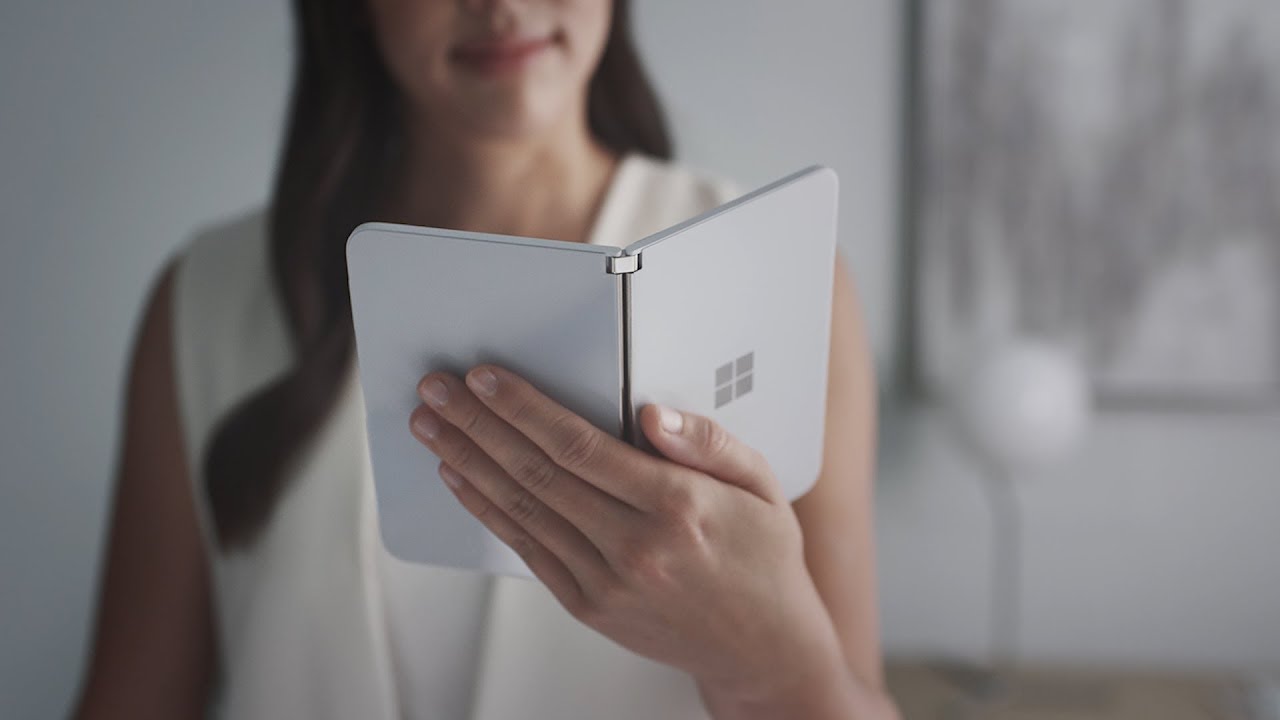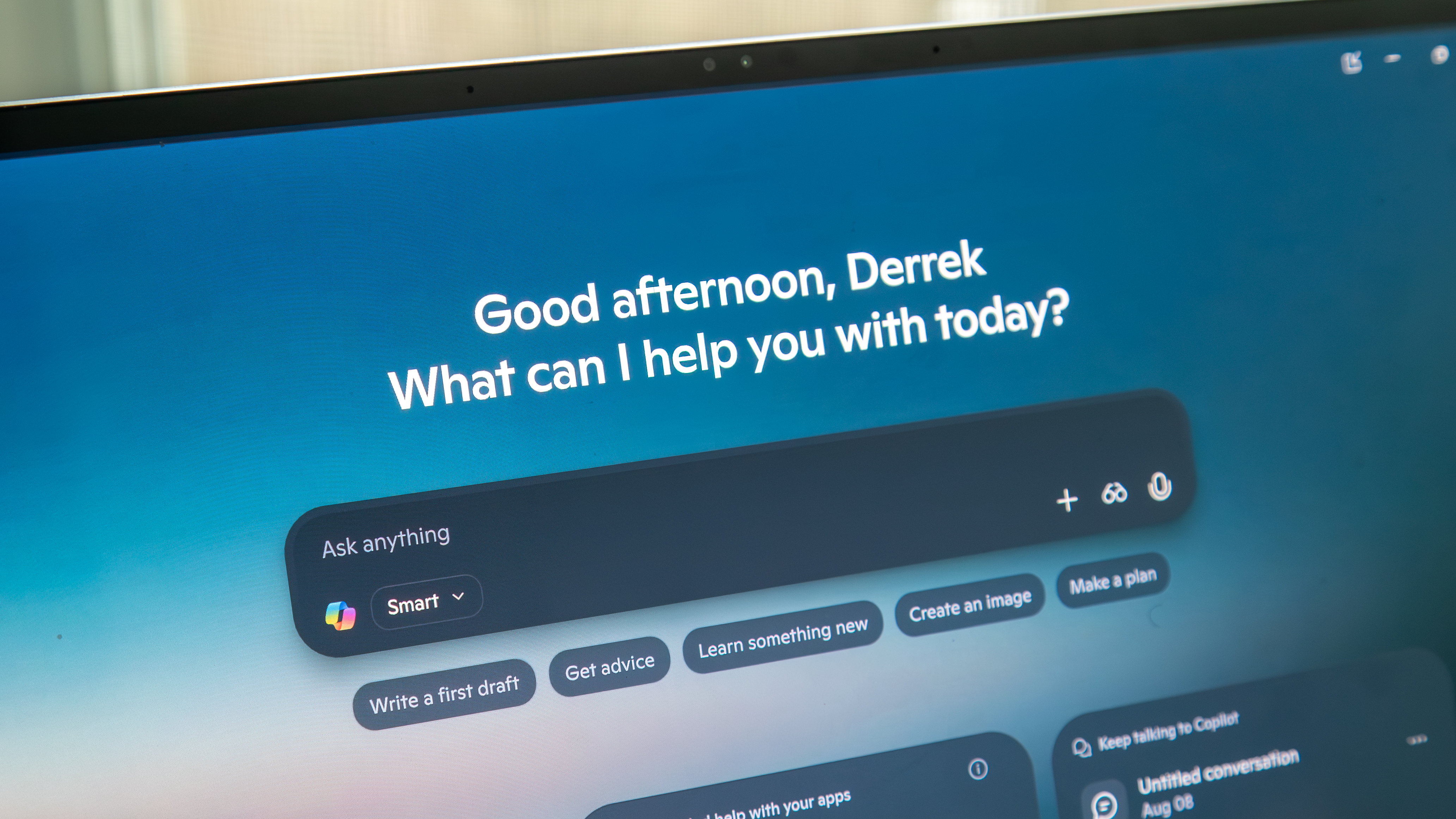Microsoft's 'folding' Surface Duo is a near-perfect execution of a very old idea

Get the latest news from Android Central, your trusted companion in the world of Android
You are now subscribed
Your newsletter sign-up was successful
We've seen other companies take on the dual-screen folding phone idea, notably ZTE with the flawed Axon M. But I think the Microsoft Surface Duo is the first time I've seen it done this well.
Back in 2011, Kyocera strolled out the Echo, a folding Android phone. It wasn't very good from a usability standpoint, mostly because when "unfolded" you had a huge black bezel between the two physical screens. I'm not averse to bezels where they're needed, but this was just too much. Outside of the bezels though, I thought the idea was sound and with some further refinement, a phone with two screens that merged into one, or worked with each other separately, was a device that needed to be built.
A small bezel is still better than a display that won't last.
The Surface Duo benefits from all the ideas other "folding" phones had before it, and it's a boon that Google is involved. On the hardware side, Microsoft designed something sturdy yet thin and light, that's not too big, and doesn't have a distracting bar between the two displays. Yes, there is clearly a pair of bezels there and there will be times where they get in the way when using the Duo as a big-screen device, but it's not so jarring that it makes it unusable. And in my opinion, that small bezel is a much better design than a folding display that will have a crease and eventually fail like the Galaxy Fold. Anyone who has used a Surface product can tell you that Microsoft does a great job at building beautiful and sturdy products.
On the software side, the biggest benefit will be running a version of Android that's designed for two displays. Microsoft worked closely with Google and we're told that there are some custom APIs in the operating system, but much of what was shown off is just Android 10. A version of Android that knows what to do when you drag from one screen to the other or enlarge to use the entire surface can do more tricks than multi-window on a single panel. It certainly will have issues — it's not launching for another year — but because it's Android, we know the operating system itself will just work.
The Surface Duo is running an operating system that's actually designed for foldables.
LG was very close to the mark with the G8X. The problem was that it wasn't built with two displays and relied on a case-like adapter and that made things clunky. You had a big bezel, a bulky hinge, but a dual-display experience that ran the gamut from phone to laptop. The one thing it couldn't do was open to a flat "single" display. I think that's something most people interested in a folding device really want to see.
The Surface Duo isn't going to be for everybody. The sheer size will be polarizing, and by the time it actually goes up for sale, we'll have seen plenty of other things we want to spend our money on. Some of them will look very much like a Surface Duo, too. Another thing that will temper consumer reaction (read: sales) is that not many people really want an Android-powered laptop, no matter how small and "phone-ish" it might be. The Surface Duo might have figured out the hardware, but it's still a niche device that not too many people are asking for.
The Surface Duo isn't going to be for everyone but it's a great mobile device for the enterprise.
What the Duo will do well is integrate with your Microsoft desktop computer, which means it's a perfect mobile device for any business traveler. Expect to see Microsoft Office building special sauce for the Duo as well as updates for Windows that integrate the Duo even further into the desktop experience. Microsoft knows enterprise and business software and has a keen eye for features that keep users locked in year after year.
Get the latest news from Android Central, your trusted companion in the world of Android
Really, none of this matters right now. The Duo isn't going to be available until late 2020 and that's an eternity in the tech world. But it is nice to see someone figure out a big-screen clamshell Android device without trying to sell a flat sheet of plastic or a gimmicky detachable case. I just never figured that it would be Microsoft doing it.
In the meantime, there are plenty of great Android phones to buy.

Jerry is an amateur woodworker and struggling shade tree mechanic. There's nothing he can't take apart, but many things he can't reassemble. You'll find him writing and speaking his loud opinion on Android Central and occasionally on Threads.
